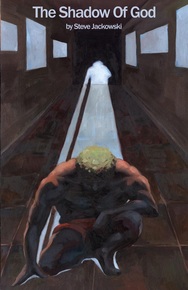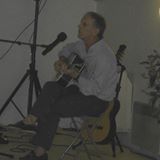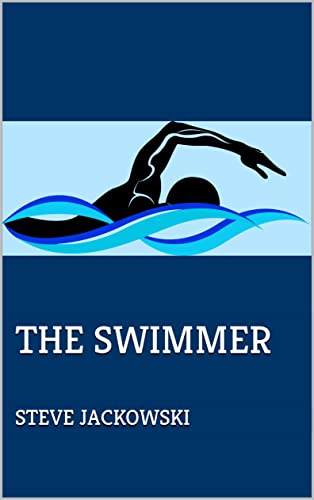 Soon to be L'ombre de Dieu.
Soon to be L'ombre de Dieu. Since I self-published, I don't have the benefit of a large publisher who pays for translation and international distribution. However, I must admit that I like the idea of seeing my books printed in other languages and available in other countries. But then I did the math. The Shadow of God is about three hundred pages and The Silicon Lathe is almost four hundred pages. If someone could translate 5-10 pages a day working full time, it would take at least a couple of months to translate just one book. That had to be expensive.
My searches on the Internet were challenging and when I did ultimately find people willing to do the work, I discovered that costs of translation are pre-determined in France, and start at 20 euros per page plus expenses and royalties. This seemed like a big risk for what might be a questionable result.
And then Cindy from Txamarra, an excellent restaurant in Guethary on the Alcyons jetty, said she knew someone. I gave her my email address and a few weeks later, received a message from Peyo Amulet, who lives in Guethary and does translations. To test him out, I sent him the first pages of both novels. He turned them around about a week later and I was impressed. I read French fluently and his translations were at least as good as my originals. Now I had to determine if it was worth the cost and the effort.
Alain Gardinier, a French surfer, filmmaker and author, has been publishing pop/surfing culture non-fiction books in France for years. He recently published DPRK a well-researched spy novel about North Korea. I bought and read it immediately and it was quite good. In fact, within a few weeks of its publication, it made it onto the best seller list in France.
During our last visit to France, I met with Alain to hear how this happened and whether he'd made any money off of the book (wondering if it were even possible to recover the cost of a translation). Alain told me a very funny story about the book reviewer for a major French publication who confused Alain's last name with a well-known best selling author and ended up reading and reviewing his book. That review brought him into the top 25 books sold in France for one week. His sales weren't huge, but seemed to have generated a bit of income. He didn't recommend the small firm that published his book. Instead, he gave me names of several publishing houses who had rejected his book, but who loved to publish little-known American authors especially if they write thrillers.
This encouraged me to continue and when I mentioned that I was considering Peyo Amulet to translate, Alain gave Peyo his highest recommendation.

We spent most of the lunch getting to know each other, then discussed how we would proceed with the translation. Ultimately though, it became clear that this wouldn't be a word-for-word translation, or even a paragraph-by-paragraph translation. Instead, it would effectively be a joint rewrite. To kick it off, we agreed that as soon as Peyo completed another project he was working on, he would translate ten pages and we'd sit down together to go through the translation. This would give us a good idea how hard it would be and how long it might take. I still had to choose which book to translate.
Although I suspect The Silicon Lathe would appeal to French readers, Alain's comments about the French publishing houses that are looking for American thrillers made me ultimately decide to go with The Shadow of God. Of course it's almost a hundred pages shorter too...
A few nights later, Peyo and his wife Dany invited us to dinner at their house. We had an excellent country French meal and consumed more than we probably should have. A few days later I had the first ten pages in hand and went back to Peyo's house to work through the translation.
For the most part, it was excellent and could move forward untouched, but there were a few things which caught my eye and which we discussed at length:
- Choice of language - How formal is the conversation? It makes a big difference in French.
- Sentence structure - In modern French literature, you see lots of incomplete sentences. In English, we do this all the time in dialogue, but otherwise tend to reserve use of fragments for when we need to make a specific point or want to change the rhythm by creating breaks in the flow. Not so in French.
- Culture - expressions, points of view, and explanations that make sense to us in English might make no sense to a French person. These needed to be properly adapted.
- Elimination and addition of text - this has to be every author's fear - will my words be lost? Will symbolism or imagery disappear? Will new text that I didn't write reflect what was intended?
- Rhythm - I vary the pace based on what's going on in the story and whether I want the reader to savor a situation, get excited, or race forward. Changing sentence structure, culture, language, etc. will certainly affect the rhythm of the book.
We agreed that Peyo would send me ten pages at a time and we'd go through them on Skype.
I read French fluently. I'm confident that I can work with Peyo. He wants to respect my work but at the same time, make the translation the best it can be for a French reader. I'm sure that this one-on-one interaction and discussion is not what most authors would get with a translation paid for by their publishers. I feel very lucky.
I'll keep you updated on how it goes. With luck, I'll be publishing the French version of The Shadow of God early next year and seeking French publishers in the Spring.


 RSS Feed
RSS Feed